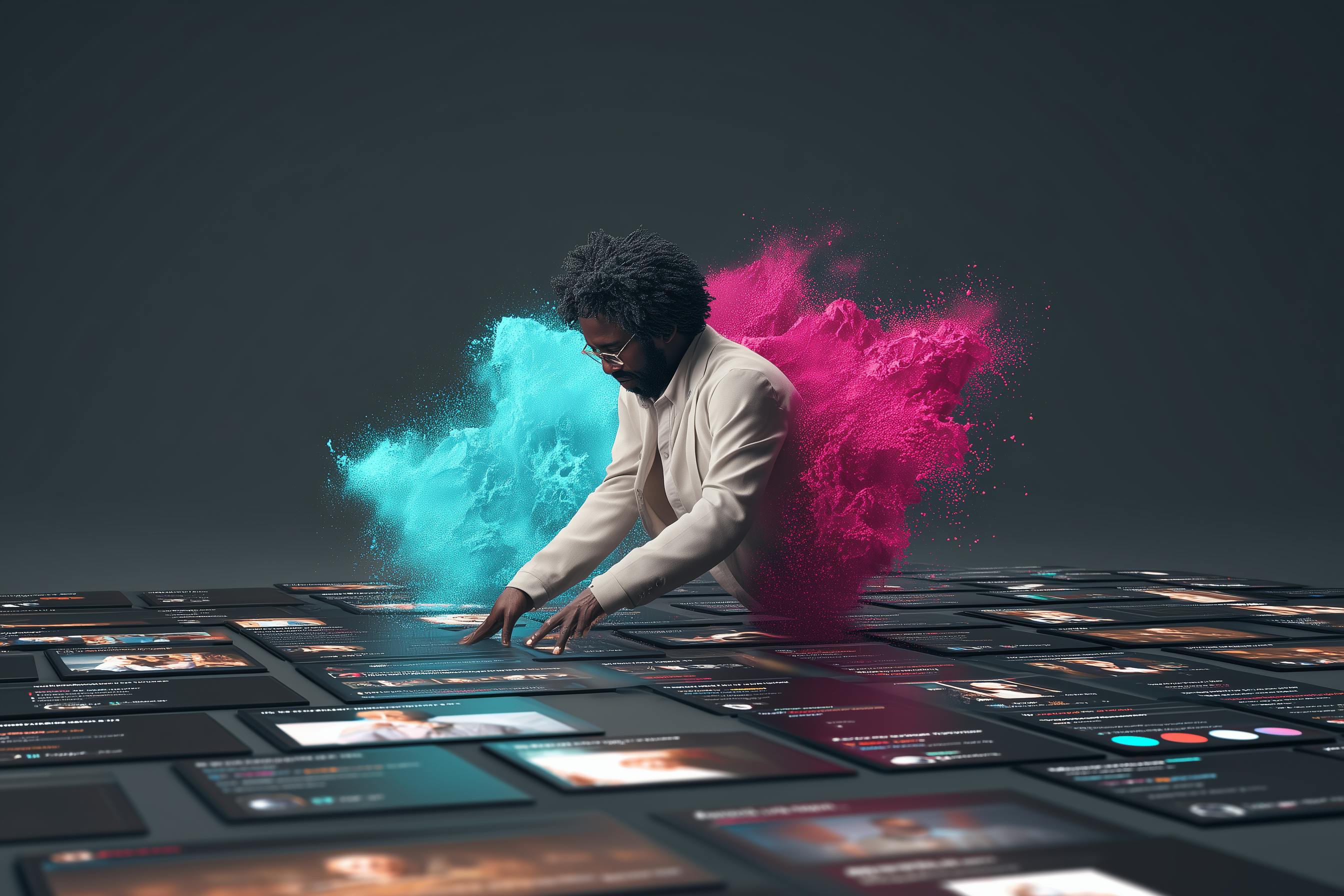“As algorithms perfect imitation, our humanity lives in the imperfections we choose to keep.”
I’ve spent years helping brands find their voice — shaping stories, building identities, trying to make them feel human in a world that’s becoming anything but. But lately, I’ve been carrying a quiet unease. We’re creating more than ever before. AI has given us infinite tools, infinite outputs, infinite possibilities. A brand can now produce a year’s worth of content in a week. Yet the more we create, the more everything begins to blur together.
Captions, campaigns, images, entire identities — they’re starting to sound like echoes of each other. Perfectly optimised. Polished down to the pixel. Efficient to the point of erasure.
And beneath it all, there’s a strange emptiness — a dull ache of homogenisation.
Sometimes I wonder if we even notice it anymore.
We consume endlessly — scroll after scroll, video after video — and yet we feel… less. Reality and simulation are becoming inseparable. AI-generated images are indistinguishable from photographs. News cycles are cut like movie trailers. Hollywood, gaming, and social media have taught us to process tragedy as spectacle and violence as content.
We watch wars unfold on screens we hold in our hands. We see the suffering, the heartbreak, the loss — and yet we scroll past it, conditioned by the endlessness of it all. That familiar weight in your chest? That quiet, helpless ache? It’s become almost routine.
But here’s the question I keep asking myself: are we truly helpless? Or have we simply been trained to believe we are? Because when enough noise surrounds us, numbness becomes survival. And when numbness becomes normal, empathy becomes rare.
And yet, this is the paradox I can’t ignore.
The faster AI evolves, the more sameness we’ll see. And the more sameness we see, the more authenticity will matter. Not as a tactic. Not as branding. But as the last thing that can set us apart. The creators and brands who will endure won’t win by producing more. They’ll win by creating work that feels alive. Work that breathes. Work that carries fingerprints, flaws, contradictions — the things machines cannot replicate.
But there’s another tension here: we are still, in many ways, at the mercy of the platforms themselves.
Algorithms decide what’s seen, what’s valued, what spreads. And from what I’m observing, there’s a growing gap between the speed at which AI is generating “better” content and the platforms’ ability to recognise what’s truly authentic.
That’s the irony, isn’t it? We’re entering an age where authenticity is critical — but we’re also depending on algorithms to decide what “authentic” even means. And if a machine determines realness… does realness lose its meaning?
I feel this tension in my own work, too.
I’ve used AI to write, to explore, to refine ideas like this one. And yes, there’s cognitive dissonance in that — writing about authenticity while using technology to help articulate it. But maybe that’s exactly the point.
Authenticity isn’t about rejecting AI. It’s about staying awake while using it. It’s about choosing to keep your voice intact, even when the tools tempt you to optimise it away. Because the tools will only get better. The lines between human and machine will blur further. Soon, anyone will be able to make something polished, seamless, “good enough.”
And in that future, the real battle won’t be over who creates the most. It’ll be over who dares to create what’s most human.
Maybe that’s why authenticity isn’t just an advantage anymore.


